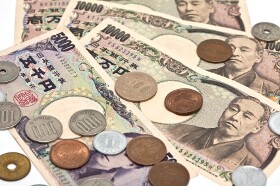The Japanese yen fell this week as market sentiment was swinging back and forth among pessimism and optimism, but ended the week leaning to optimistic outlook for Europe and for the global economy in the whole.
Traders were feeling optimistic about Europe’s ability to overcome its crisis. The US economy still looks robust, even though some data made investors worried. Even China is still considered an economic powerhouse by many experts despite concerns about a hard landing for the country’s economy. Additionally, the Bank of Japan previously stated that it’s going to perform monetary easing, reducing appeal of the yen.
AS Carl Forcheski, the director on the corporate currency sales desk at Societe Generale, summed that up:
The main driving force behind the yen was the Bank of Japan embarking on a much easier monetary policy. The U.S. labor market has performed a bit better than a lot of people were expecting and some of the data weâve seen lately has given us a little bit of optimism.
The week started on the positive not as Federal Reserve Chairman Ben Bernanke hinted that a new round of quantitative easing isn’t out of question, leading to a drop of the yen. Later, the yen rebounded on concerns about China’s economic slowdown and reemerging fears of the debt crisis in Europe. By the end of the week, though, the Japanese currency resumed decline as European finance ministers agreed to boost the aid for indebted nations of the European Union.
USD/JPY rose from 82.39 to 82.80 this week. EUR/JPY was up from 109.34 to 110.48 and GBP/JPY edged higher from 130.78 to 132.60.
If you have any questions, comments or opinions regarding the Japanese Yen,
feel free to post them using the commentary form below.
